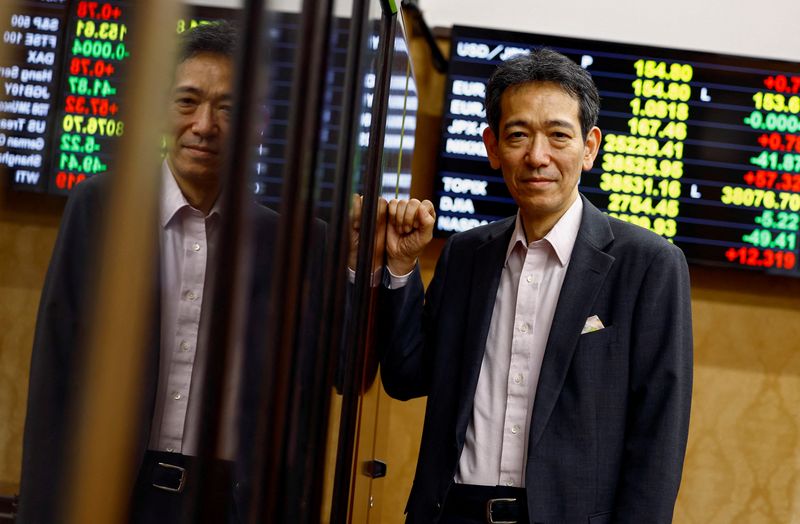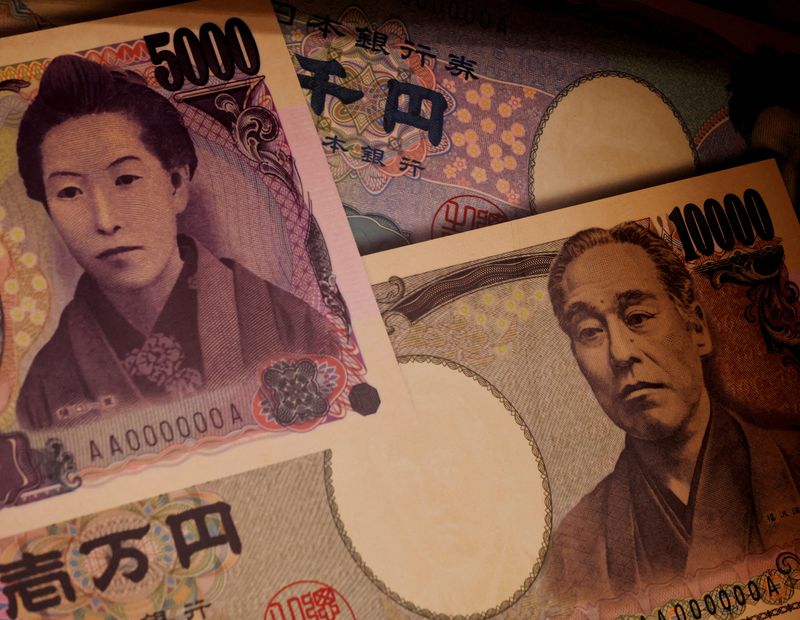By Makiko Yamazaki and Takaya Yamaguchi
TOKYO (Reuters) -Japan will retain its basic approach on the yen with intervention remaining an option to tackle excessively volatile moves in the exchange rate, the country's new top currency diplomat Atsushi Mimura told Reuters.
"Japan will act under internationally agreed commitments that exchange rates should be determined by markets, but that excessive volatility or disorderly movements can have an adverse impact on economic and financial stability," Mimura said in an interview on Tuesday.
"It has been internationally agreed that measures including interventions are allowed when necessary," he added.
Previously head of the ministry's international bureau, the 57-year-old became vice finance minister for international affairs on Wednesday - a post that oversees Japan's currency policy and coordinates economic policy with other countries.
Mimura's appointment comes as the Japanese currency shows tentative signs of recovery from 38-year lows, as investors unwound their long-running bets against the currency ahead of a Bank of Japan meeting this week.
While a weak yen gives exports a boost, it has become a source of concern for policymakers by pushing up the cost of imports and hurting consumption.
His predecessor, Masato Kanda led massive bouts of yen-buying intervention in 2022 and 2024 during three years in the position and was also known to aggressively warn markets against pushing down the yen.
"A change in vice finance minister for international affairs doesn't mean a change in basic policy for not just foreign exchange but various things as they are decided by the finance ministry as an institution," Mimura said.
He declined to comment on the current market situation, saying that such comments could have an unforeseen impact on markets.
Mimura, meanwhile, hinted at a potential change in the style of communications with markets.
"Communicating with markets is extremely important," he said. "Being always vocal is one style of communication, but not speaking may also be another way of communication. We must avoid creating unnecessary market speculation or uncertainties, but communication can be done both by speaking and not speaking."
Mimura also said the Ministry of Finance will continue cooperating with the Bank of Japan and the financial regulator, the Financial Services Agency, as the three parties need to be on the same page regarding macroeconomic policy.
Mimura said it is true that the yen's effective exchange rates have weakened due to decades of deflation, and the only and natural solution is to improve Japan's economic competitiveness and boost the country's growth potential.
"Areas of growth could not just be limited to traditional manufacturing but also in inbound tourism, pop culture, soft culture and others," he said.

Having spent nearly a third of his 35-year government career at Japan's banking regulator, Mimura has the expertise and international ties in the area of financial regulation.
During his three-year stint at the Bank for International Settlements in Basel, Mimura helped set up the Financial Stability Board in the midst of the 2008-2009 global financial crisis to reform financial regulation and supervision.
